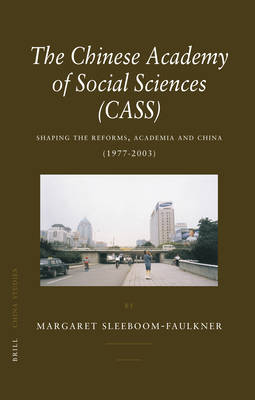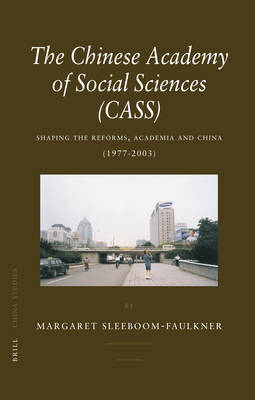
- Afhalen na 1 uur in een winkel met voorraad
- Gratis thuislevering in België vanaf € 30
- Ruim aanbod met 7 miljoen producten
- Afhalen na 1 uur in een winkel met voorraad
- Gratis thuislevering in België vanaf € 30
- Ruim aanbod met 7 miljoen producten
Zoeken
The Chinese Academy of Social Sciences (CASS)
Shaping the Reforms, Academia and China (1977-2003)
Margaret Sleeboom-Faulkner
€ 283,95
+ 567 punten
Omschrijving
This socio-political analysis of the Chinese Academy of Social Sciences (CASS) sheds new light on the link between China's educational reforms and the ideological control exerted by the Party-state. It explores the dynamics of the ways in which the academic community has carved out and utilised the spaces between the academic and Party leadership and the free will of the individual. By differentiating between various forms of power, the author shows how knowledge produced at CASS is influenced not only as a direct result of top-down decisions-making but also unintentionally through organizational networks that interlock both leaders and led in the institutions they helped shape. Administrative tools and symbolic representation in official ceremony are shown to be indispensable for an adequate understanding of the generation of knowledge at CASS. With financial support of the International Institute for Asian Studies (www.iias.nl).
Specificaties
Betrokkenen
- Auteur(s):
- Uitgeverij:
Inhoud
- Aantal bladzijden:
- 383
- Taal:
- Engels
- Reeks:
- Reeksnummer:
- nr. 9
Eigenschappen
- Productcode (EAN):
- 9789004153233
- Verschijningsdatum:
- 31/01/2007
- Uitvoering:
- Hardcover
- Formaat:
- Genaaid
- Afmetingen:
- 167 mm x 246 mm
- Gewicht:
- 866 g

Alleen bij Standaard Boekhandel
+ 567 punten op je klantenkaart van Standaard Boekhandel
Beoordelingen
We publiceren alleen reviews die voldoen aan de voorwaarden voor reviews. Bekijk onze voorwaarden voor reviews.








